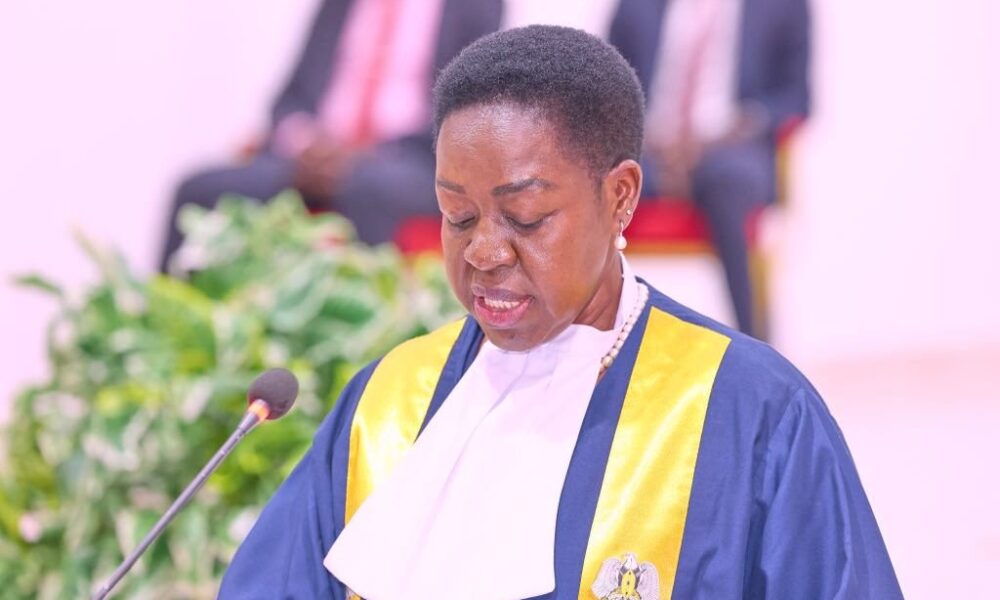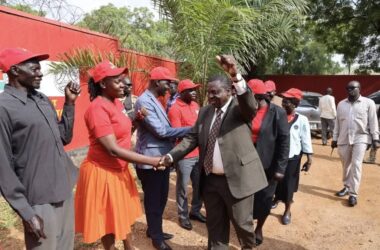By Yiep Joseph
As the Transitional National Legislative Assembly (TNLA) reopens for tasks, Speaker, Jemma Nunu Kumba poked on the Executive for non- compliance.
In her speech during the reopening of TNLA on Wednesday, Nunu pointed that some officials misinterpret the Parliament summons, hence defiance.
“Allow me, your Excellency (President Salva Kiir), ladies and gentlemen, to address a matter of concern: the emerging perception in some quarters that legislative summons are confrontational, personal attacks, or unnecessary interference,” Nunu said.
Nunu’s remark followed a series of acts of defiance to parliamentary summons in the previous year, 2024.
The Assembly reopened with agenda surrounding peace implementation as well as policies meant to strengthen service delivery.
The delays in the implementation of the 2018 peace agreement, the economic crisis, and poor service delivery persists are among urgent matters.
For government to respond effectively, there is a need for friendly coordination between the executive and legislative arms of the government.
However, such coordination, in the previous sessions continued to face challenges, including defiance of parliamentary summons by some officials including members of the Executive (ministers).
Thus, taking a fresh direction, the speaker urged officials including those in the executive arm, to adhere to parliamentary summons.
She urged the officials to view summons at positive angles, as it provides an avenue for officials to team up with parliamentarians in getting a solution.
“Responding to a parliamentary summons should be viewed as an opportunity; it allows public servants to highlight the realities they navigate, share their accomplishments, and draw attention to the areas in need of support,” she said.
The speaker added that the Legislative Assembly will continue to exercise meaningful oversight over the performances of the public institutions.
“With that regard, we encourage all public servants, including those in the executive branch, to continue cooperating with the legislature,” she appealed.
She expressed that responding to summons, enables legislators to better understand the circumstances facing the various institutions.
“Ultimately this enhances public trust and strengthens the relations between our institutions and the citizens they serve,” Nunu said.
The speaker emphasized that cooperation is essential to the success of our democratized processes and the well-being of the nation.
Defiance to parliamentary summons, on record
In 2024, the Transitional National Legislative Assembly (TNLA) session on Wednesday, August 14th, was disrupted after several key ministers summoned to address the country’s hunger and economic crises failed to appear.
These include ministers of finance and planning, petroleum, mining, agriculture and food security, livestock and fisheries, trade and industry, environment and forestry, water resources and irrigation, land housing and urban development, wildlife conservation and tourism, and investment.
The Commissioner General of South Sudan Revenue Authority was also among those summoned.
The ministers of finance and planning, petroleum, agriculture and food security, and trade and industry who are key to the subject matter did not show up for the scheduled hearing, bringing the parliamentary proceedings to a standstill.
Their failure has been seen as a rejection of the legislature’s constitutional oversight role.
Article 82 (1) of the Transitional Constitution 2011 says the National Legislative Assembly or any of its committees may summon any public official or any person within South Sudan, other than the President, to testify or give an opinion before it.
Fresh demands
Meanwhile, in a separate but related development, an activist has called on parliament to immediately summon some key ministers questioning.
Ter Manyang, the Executive Director for the Center for Peace and Advocacy (CPA), called on TNLA to urgently summon four key ministers to respond to burning public concern.
Among the ministers the activist marked for summons are Minister of Cabinet Affairs, Minister of Finance and Planning, Minister of Defense and Veterans Affairs and the Minister of National Security
Manyang expressed that the Minister of Cabinet Affairs should be summoned to explain the continued absence of the Council of Ministers meetings.
While the Minister of Finance and Planning must appear to explain the ongoing liquidity crisis and the worsening economic situation in general.
He added that both the Minister of Defense Veteran Affairs and the Minister for National Security should appear to provide a detailed account of ongoing military operations, including the presence of foreign troops in the country.
“The people of South Sudan deserve answers; Parliament must exercise its oversight role and take immediate steps to investigate these issues transparently,” he said.




